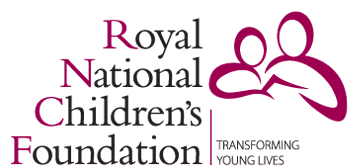Research
Background to the research
A research project "Breaking Through" was conducted in 2007 to examine the extent to which the charity is meeting its key objectives viz:
- Assisted boarding - for the right child, in the right school, at the right time - can transform the lives of vulnerable children and help prevent the eventual need for many young people to be taken into local authority care
- In addition to helping the vulnerable child, Assisted Boarding arrangements can help rebuild relationships and hold together a fractured family for the benefit of the single parent / guardian and siblings.
Research was conducted into a sample of 97 vulnerable children whose boarding fees were co-funded by RNCF, school bursaries and other charities.
Children 'at risk' in disrupted and deprived families
- Before they were admitted to boarding school, almost 50% of these children were in the care of a single parent with a reported mental (38%) or physical (11%) illness
- 30% of these children had been exposed to violence, abuse or threatening behaviour in the family or home environment
- 13% of these children were themselves acting as "young carers" of parents or siblings
- Most (71%) of the children were in the care of mothers, with 53% of them having had no recent contact with their father
The structure, security, stimulation and pastoral care of boarding school helps once-troubled children, quite literally, climb to the top of the class
- 39% of those who has been Assisted Boarders for at least three years (3+) became 'star performers' in their schools on a range of social, emotional and academic criteria within that time – almost three times those Assisted Boarders who had been predicted to achieve that at the time of admission.
- Of the 73% of the 3+ children assessed on admission to boarding school as being ‘at risk’ of failing, almost half were rated as on or above their peer group average within three years.
- 85% of the 97 vulnerable children were assessed as being at or above the average of their peers on all social and educational criteria within three years of going to boarding school
The vital role of boarding schools in a society of fractured families:
Helping young people 'break the cycle of family disadvantage'
- Boarding school is proved to be highly effective in helping the 'recovery' of the vulnerable children in this study. Boarding school helped most of these children achieve the social skills, self-esteem, coping ability and academic performance of their peer group within 2 - 3 years.
- The fact that 39% of these vulnerable children from deprived backgrounds became, literally, 'star pupils' within three years (in a social as well as an educational sense) proves the weighty and continual anecdotal evidence which has indicated that many of these needy children grasp the 'golden opportunity' of Assisted Boarding with a determination that helps make them above-average achievers.
- The boarding schools involved in this research offer high levels of pastoral care, individual attention and unparalleled experience in Assisted Boarding with RNCF for the past 40 years. We believe this proven work could be expanded substantially at a time of rising numbers of 'fractured' families and (it is believed) vulnerable, troubled children.
Conclusions
Most of these vulnerable children assimilate quickly
Boarding school is proved to be a highly significant contributor to the 'recovery' of the vulnerable children in this study. It helps many of these children quickly achieve or exceed the social skills, morale, and coping ability of their peer group average. For most of these vulnerable children, their troubled start in life is seen to be a spur to making the most of their new opportunities at boarding school.
Many of them become all-round school 'stars'
The selection of the 'right child, at the right school, at the right time' creates the opportunity for relatively (and, sometimes, perhaps surprisingly) quick assimilation. This study shows that many of the most vulnerable children in Assisted Boarding make quite dramatic early progress. A full 40% of these children achieved or exceeded their peer group 'average' (on social, emotional and academic criteria) within two years, and 85% did so within 3 years. A full 39% of those who had been boarders for at least three years became above average ('star') pupils during that time.
Boarding may prevent some children needing to be taken into care
Assisted Boarding can clearly make a greater contribution to: the 'recovery' of vulnerable children; to the 'mending' of 'fractured' families; and, perhaps also, to preventing the future need for some of these children to be taken into local authority care.
The pastoral care and structure of the modern boarding school clearly has a significant role to play in child welfare.
Boarding schools 'save' young lives
These conclusions should point the way towards social-oriented policies that would seek to maintain an 'adequate' level of boarding school capacity. These schools are seen to be so much more than a 'home from home' for some of the young victims of fractured families in 21st century Britain.
Boarding helps to break the cycle
Boarding school will never be appropriate for all children, whether vulnerable or not. But the Breaking Through research proves that, for the right children, at the right schools, at the right time, Assisted Boarding can and does transform hundreds of vulnerable young lives. In a 21st century Britain marked by perhaps hundreds of thousands of vulnerable young people, Assisted Boarding can help thousands more of them break the cycle of 'family disadvantage'.
It is difficult to escape the conclusion that the country which gave the world a boarding school tradition must now maximise its potential - and those of its vulnerable young people - in an era of fractured, deprived families and erratic parenting.


